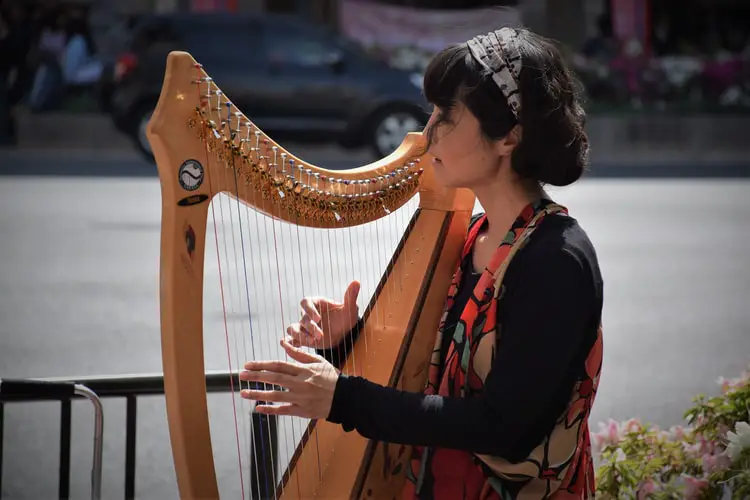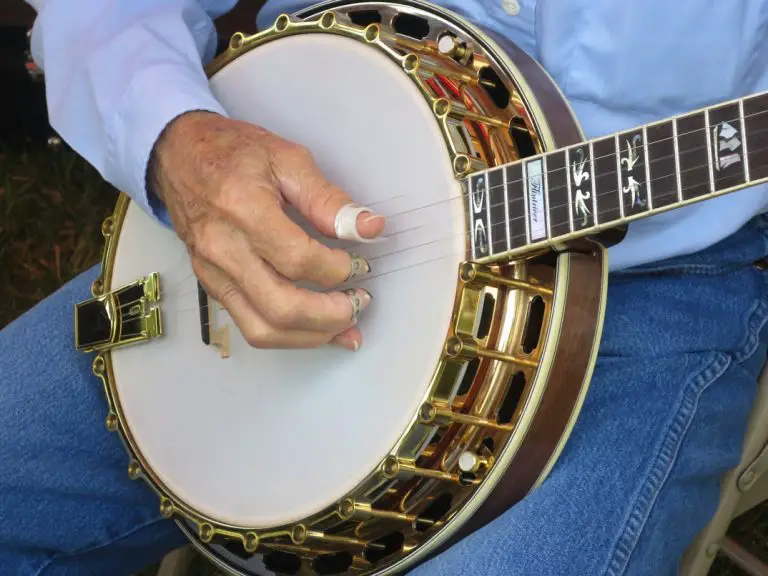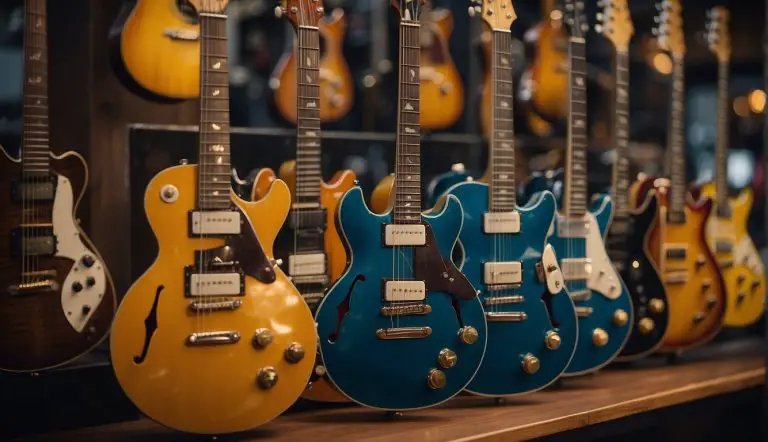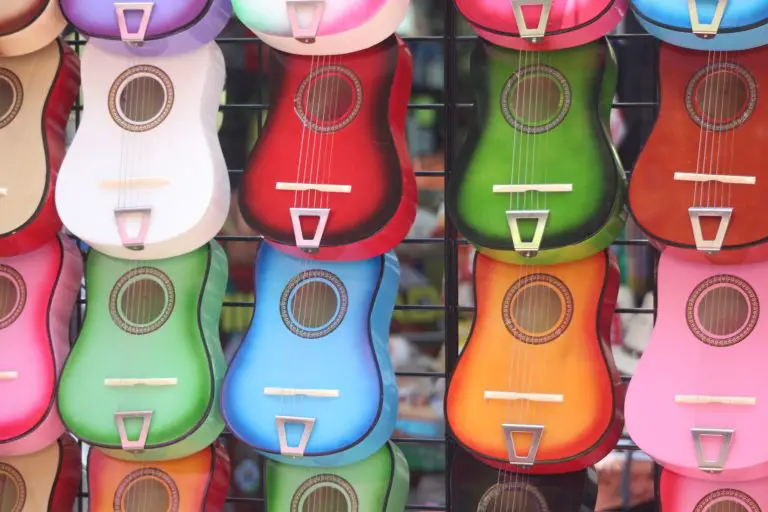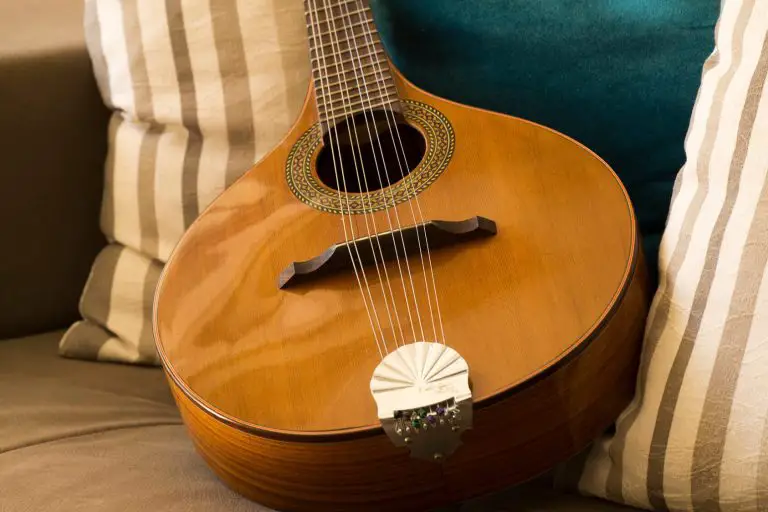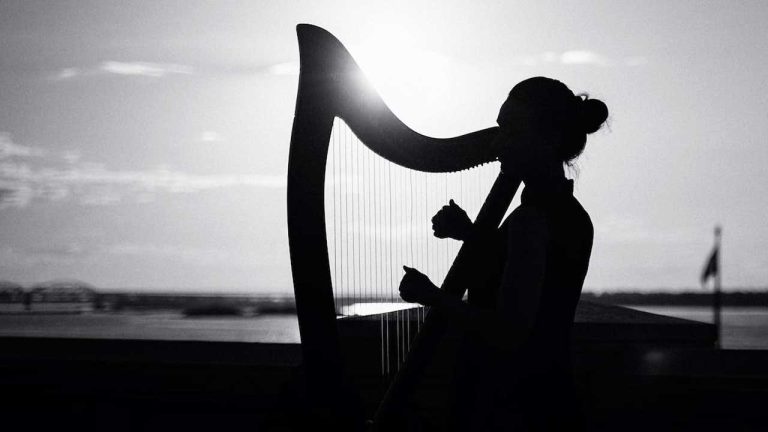10 Best Harps for Beginners Lever and Lyre Harps: A Friendly Guide to Start Your Journey
Folkstrings.com is reader-supported. When you buy through links on our site, we may earn a small commission.
Entering the fascinating world of harps can be an enriching experience for music enthusiasts. As a beginner, it’s crucial to choose the right harp, taking into consideration the type of harp, quality, and price.
In this article, we will explore lever and lyre harps, providing insights on how to select the best instrument for a novice player.
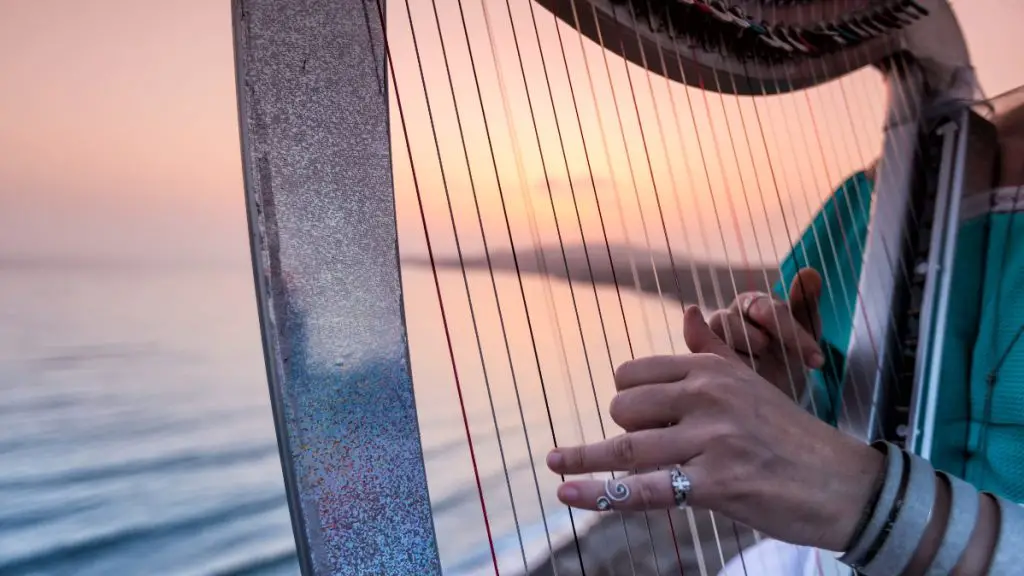
Lever and lyre harps are both great options for beginners, as they offer a more compact and accessible introduction to the world of harps. Lever harps, also known as Celtic or folk harps, are widely popular because of their portable nature and adjustable pitch options.
On the other hand, lyre harps, one of the oldest string-based instruments, provide a unique playing experience with a rich history, making them appealing for personal enjoyment or even therapeutic uses.
Once you understand the differences between lever and lyre harps, it’s essential to consider the quality and price of the harp you are interested in.
In addition, knowing how to maintain your instrument and selecting the right accessories to complement your learning experience is equally important. With this in mind, our article aims to guide you through the process of choosing the best harp for beginners.
Key Takeaways
- Lever and lyre harps are suitable for beginners, each offering unique playing experiences.
- Consider harp quality and price before making a decision.
- Proper maintenance and appropriate accessories can enhance your learning experience.
Table of Contents
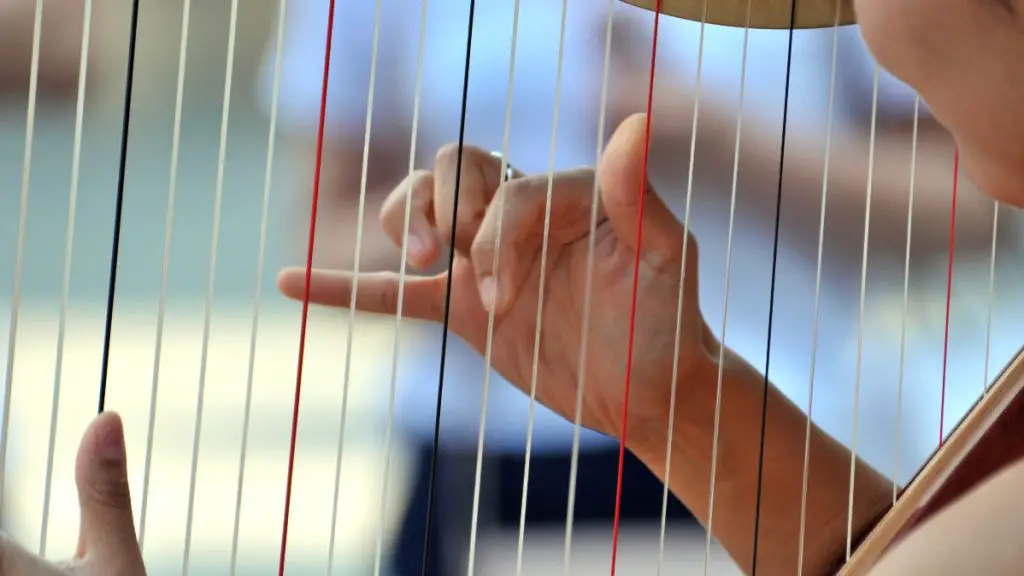
The 10 Best Harps for Beginners
(Lyre and Lever Harps)
Top 5 Lyre Harps
Why choose a lyre harp over a lever harp?
A beginner to harp playing might choose a lyre harp over a lever harp due to its smaller size, making it easier to handle and learn. Additionally, the smaller number of strings on a lyre harp can be less overwhelming for beginners, allowing them to focus on mastering the instrument without feeling intimidated by a larger number of strings. The compact size of lyre harps also makes them more portable and convenient for beginners to practice and play in various settings.
- Crafted from solid mahogany, solid spruce, and iron keys
- The upgraded iron saddle enhances vibration transmission and durability, ensuring a longer lifespan for the lyre harp compared to wood saddles.
- With 19 strings spanning from F3 to C6, offers a wide range of scales and tones, complete with a special wrench for adjusting each string's tone.
- Comes with spare strings, a tuning wrench, a black carrying bag, and instructions, making it an ideal gift for both beginners and professionals.
Donner 16 Metal String Lyre Harp
- Crafted from solid mahogany and carbon steel keys, the Donner 16-string lyre harp ensures a clear, gentle sound, with a copper saddle for improved vibration transmission and tuning stability.
- Featuring 16 strings spanning G3 to A5 in the C major scale, this harp offers a wider range of tones compared to harps with fewer strings, reducing the need for frequent retuning.
- A great choice as a gift for beginners and kids.
- The package includes the Donner DLH-003 lyre harp, spare string set, tuning wrench, gig bag, instruction book, polishing cloth, 2 picks, and a 30-day unconditional money-back guarantee with customer support assistance.
- The Aklot lyre harp is crafted from Okoume, a high-density wood known for its strength in maintaining tone and preventing string force into the wood, resulting in a warm, pleasant sound.
- Has 16 durable steel strings, this lyre harp produces a ringing tone that can fill a room, with the string length and tension determining the pitch.
- The instrument features rounded edges for safety and comfort, while the soundboard creates a continuous whistling effect. The loop end design ensures stability and tuning consistency.
- The lyre harp kit includes a tuning wrench for adjusting string tension, along with extra strings, a pickup, and a black gig bag. Additionally, a 60-day quality and satisfaction warranty is provided, with customer support available for any inquiries.
Lotkey 16 String Lyre Harp with Tunning Wrench, Extract Strings, Manual and Gig Bag
- Made from solid mahogany resonance box and iron keys.
- 16 strings in the C major scale (G3 to A5), this harp comes with a set of strings and a special wrench for adjusting the tone of each string, allowing for fine-tuning to the required scale.
- The harp boasts an exquisite appearance design, featuring a unique music pattern on the sound hole designed by a professional, symbolizing a wonderful musical journey.
Donner 16 String Lyre Harp Set with Tuning Wrench and Black Gig Bag
- The instrument comes with a carry bag for convenient portability during travel or parties.
- This harp is backed by a 65-day unconditional money-back guarantee, providing a little extra assurance for buyers.
Top 5 Lever Harps
Why choose a lever harp over a lyre harp?
I would choose a lever harp over a lyre harp for its greater versatility, wider range of musical expression, and more extensive repertoire. The lever harp’s larger size and greater number of strings allow for a more diverse and complex musical range than the lyre harp which is more of a beginners instrument, making the lever more suitable for exploring various musical genres and styles. Additionally, the lever mechanism enables key changes during performance, enhancing the harp’s musical capabilities.
Sturgis 15 String Lever harp - Hand Made with Dulex Bag and Tuning Key
- Size 15 x 22 x 7.50 Inches
- Free Extra Strings
- Comes with Key Tuner and Carrying Case
- Water Resistant Material on bag
- Manufacture by Sturgis
KZA BRAD 22 String Rosewood Lever Harp with Tuning Key, Extra Strings & Carrying Case
- Includes a carrying bag, extra strings set, and tuning key
- 22 Nylon Mono Tech Strings rich quality tone
- Full-tone levers and steel bass strings for a warm bass tone
- Sharping Levers - These levers have good functionality using two points of contact for the lower and mid-range strings. This allows for the best string tonality when engaged.
- The base is made of steel for strength and rigidity.
- Great for children/teenagers learning.
Black 36 String Lever Harp Celtic Irish Style Carrying Bag Strings and Tuner
- Nylon Strings Harp Metal hardware Solid Wood
- Free Extra Strings
- Tuner Carrying Case with Zipper
- Water Resistant Material
- Manufacture by CGI
Sturgis Midwest Brown 22 Strings Lever Harp with Bag, Tuner and Extra Nylon Strings
- Made of solid mahagony wood.
- Extra strings and tuning key included.
- Deluxe padded bag included free.
AKLOT 15 Strings Mahogany Lever Harp
- The mahogany body produces a warm, professional sound and adds a touch of elegance to any space.
- With 15 strings, the blue and red colour strings make it easier to distinguish them while conforming to international conventions.
- The inclusion of two-strap locks ensures easy portability for shows and gigs.
- Each string's ball end and steel string post help maintain stable tuning, while the package includes a carrying bag, strap, and tuning wrench for immediate practice. Please note that no spare string set is included.
delete
Best Harps for Beginners Lever and Lyre Harps: A Friendly Guide to Start Your Journey
Entering the fascinating world of harps can be an enriching experience for music enthusiasts. As a beginner, it’s crucial to choose the right harp, taking into consideration the type of harp, quality, and price. In this article, we will explore lever and lyre harps, providing insights on how to select the best instrument for a novice player.
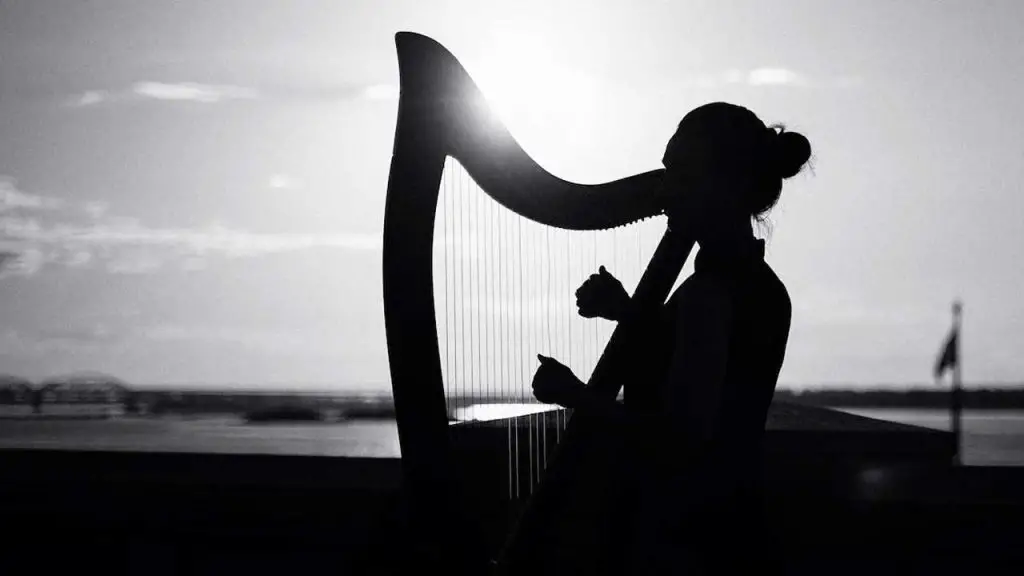
Lever and lyre harps are both great options for beginners, as they offer a more compact and accessible introduction to the world of harps. Lever harps, also known as Celtic or folk harps, are widely popular because of their portable nature and adjustable pitch options. On the other hand, lyre harps, one of the oldest string-based instruments, provide a unique playing experience with a rich history, making them appealing for personal enjoyment or even therapeutic uses.
Once you understand the differences between lever and lyre harps, it’s essential to consider the quality and price of the harp you are interested in. In addition, knowing how to maintain your instrument and selecting the right accessories to complement your learning experience is equally important. With this in mind, our article aims to guide you through the process of choosing the best harp for beginners.
Key Takeaways
- Lever and lyre harps are suitable for beginners, each offering unique playing experiences.
- Consider harp quality and price before making a decision.
- Proper maintenance and appropriate accessories can enhance your learning experience.
Why are Lyre and Lever Harps Better For Beginners?
You might be asking, why have I suggested lyre and lever harps in my top 10 list?
Lyre harps are also suitable for complete beginners due to their smaller size, making them easier to handle and learn. The smaller number of strings on a lyre harp can be less overwhelming for beginners, allowing them to focus on mastering the instrument without feeling intimidated by a larger number of strings. Additionally, the compact size of lyre harps makes them more portable and convenient for beginners to practice and play in various settings.
Similarly, Lever harps are often considered better for beginners due to their portability, affordability, and ease of learning. They are smaller, less expensive, and more transportable than larger pedal harps, making them more accessible for beginners.
Additionally, lever harps are more versatile than pedal harps, allowing beginners to explore a wide range of musical styles and genres.
Both lever harps and lyre harps offer beginner-friendly features such as portability, affordability, and ease of learning, making them ideal choices for those new to playing the harp.
How Do You Plan to Learn the Harp?
If you don’t yet know how you are going to learn the harp, we recommend having a look at some of the . The great thing about these courses is the instructors are qualified and you can stop, pause and rewind at any point during the lessons. Great if you want to stop briefly for a cup of tea!
Exploring Harps for Beginners
When I first became interested in learning the harp, I quickly discovered that there is a variety of harps available for beginners. In this section, I’ll share some information I’ve gathered on beginner-friendly harps to help you make a more informed decision.
There are two main types of harps that are particularly suitable for beginners: lever harps and lyre harps. Both of these harps are smaller in size compared to the grand pedal harps, making them more affordable and easier to transport. Lever harps typically have between 26 and 36 strings, while lyre harps usually have 7-16 strings. The compact size of these instruments also makes them ideal for developing your musical skills while getting accustomed to their unique sound.
In my experience, it’s essential to consider the harp’s size when choosing an instrument for a beginner. Smaller harps, such as lap harps and Celtic knee harps, are perfect for young learners and those looking for a more portable instrument. As a beginner, I found that lap harps and lever harps provided me with enough versatility to learn new techniques without feeling overwhelmed.
As you begin your harp journey, it’s important to learn about the different string materials and compositions. Nylon strings are commonly used for beginner harps due to their durability and affordability. As you advance, you might consider exploring gut or carbon fibre strings, which offer a more refined sound quality.
Of course, everyone’s preferences and needs will differ, so take your time to explore different harp brands and find the instrument that resonates with your aspirations. I remember how it felt learning my first song on the harp – there was an immediate sense of connection and joy in creating such beautiful music with this enchanting instrument. It felt magical!
Lastly, it’s worth noting that learning to play the harp is a rewarding but gradual process. Be patient with yourself, and remember that even the most skilled harpists started as beginners just like you and me.
Type of Harps: Lever and Lyre Harps
Focus on Lever Harps
When I started my journey in the world of harps, I first came across the lever harp. Lever harps, also known as Celtic harps, are popular among beginners because of their smaller size and affordability compared to the pedal harp. These harps typically have between 26 to 38 strings and have levers allowing for a change in the pitch of the strings.
There are two main types of lever harps that I considered: the knee harp and the floor harp. The knee harp, as the name suggests, rests on your lap or knees while playing. They are portable and best suited for children or those who appreciate its compact size. The floor harp, however, is larger and is played while standing or sitting on a stool.
Discovery of Lyre Harps
In my quest to find the right harp for myself, I also encountered the lyre harp. Lyre harps belong to the category of modern lyres, originating from ancient Greece. They have a distinct u-shaped or a rounded frame and are available in different sizes and shapes.
The best lyre harps for beginners above come with a varying number of strings, typically between 7 and 16. The strings are set up in a diatonic scale that ranges from G3 to A5, with notes like C major (C4, D4, E4, F4, G4, A4, B4, C5, D5, E5, F5, G5, and A5). The simplicity of the lyre harp makes it an excellent choice for beginners looking to dive into the world of harps.
Which is the best for children: Lyre Harps or Lever Harps?
Deciding between a lyre harp and a lever harp for children can be quite the task. Based on my experience, here are some points to consider for both options:
- Lyre Harps:
- Smaller, lightweight, and easy to hold for children.
- A much simpler instrument with a diatonic scale, making it easier to learn.
- No levers to adjust, hence less complex for beginners.
- Generally more affordable than lever harps.
- Lever Harps:
- Available in knee or floor harp’s sizes and more versatile.
- Allows for greater expression with the use of levers.
- More suitable for beginners transitioning to the pedal harp later on.
- Delivers a richer and fuller sound compared to lyre harps.
In conclusion, I encourage you to explore both lever and lyre harps while considering factors like size, complexity, and budget before making a decision for your child or beginner harpist. Keep in mind that it’s vital to find an instrument that encourages practice and fosters a love for music.
Critiquing Harp Quality and Price
Key Aspects of Quality
When assessing the quality of a beginner’s harp, certain factors play a crucial role. The type of wood used, string materials, and craftsmanship all contribute to the overall sound and tone of the instrument. Harps made from solid mahogany or maple generally produce a warm, resonant tone, while those constructed from plywood or laminate may lack richness in sound.
String material also affects sound quality; nylon strings are common for beginners due to their soft feel and more classical tone. Dupont nylon strings, in particular, are known for their durability and consistency. Metal strings, like steel, are also used in some harps, offering a brighter, more modern sound. It’s essential to find the right balance between string materials and wood for great resonance and an overall satisfying musical experience.
A well-made harp should not only sound good but also have a quality look and feel. Look for a fine instrument that is carefully crafted, with smoothly finished edges, and properly aligned and spaced strings.
Reviewing Price and Brands
When it comes to buying a beginner’s harp, finding a balance between quality and affordability is important. While some high-end harps can cost thousands, there are excellent options for those on a budget.
- Rees Harps Harpsicle Harp: A popular choice for beginners, this 26-string maple and poplar harp is lightweight and easy to play. Price: around £380.
- Roosebeck Heather Harp: This 22-string harp features a beautiful hand-carved mahogany body with a warm sound. Price: around £300.
- AKLOT Lyre Harp: A 16-string lyre harp made with solid mahogany and metal strings, great for those interested in a more modern and compact option. Price: around £65.
- LOLUNUT Lyre Harp: A budget-friendly 7-string lyre harp, perfect for beginners to learn the basics of playing and maintaining a harp. Price: around £40.
Keep in mind a good quality case is crucial to protect your investment. In many cases, brands with good reputations provide suitable cases or bags for your harp.
When selecting a beginner’s harp, remember to consider aspects such as wood type, string materials, craftsmanship, and budget to ensure you are making the right decision for yourself and are satisfied with the quality and price of your chosen instrument.
Harp Maintenance and Accessories
Proper Care and Maintenance
Taking care of your harp is important to ensure it remains in good condition and creates beautiful music for years to come. Regular maintenance ensures the best possible performance for both lever and lyre harps. To keep your harp in tip-top shape, here are some tips:
- Clean your harp regularly, using a soft, damp cloth to remove dust, fingerprints, and other grime. Avoid using harsh chemicals or abrasive materials as they can damage the wood and strings.
- Monitor the humidity where the harp is stored, as extreme changes in humidity can cause issues with the wood and strings. It’s recommended to keep the harp in a room with a consistent humidity level of around 40-50%.
- Change your strings as needed, usually at least once a year for lever harps and every few months for lyre harps. This will ensure that the sound remains consistent and the strings stay strong.
Essential Accessories
When starting your harping journey, there are a few essential accessories that will aid in playing and preserving your instrument. Here are important accessories to consider:
- Tuning wrench or tuning tool: Required to tighten the tuning pegs and ensure your harp is in tune. Some harps come with a tuning wrench included.
- Extra strings: Always have a set of spare strings on hand to replace broken or worn out strings, as this can affect the sound and performance of your instrument.
- Gig bag or padded bag: A sturdy bag for transporting or storing your harp, preferably a padded one to protect it from damage. Some harps come with a gig bag as part of a package.
- Strap: A strap can help secure the harp when you’re playing standing up, allowing you to focus on your technique and avoid holding the instrument with too tight a grip.
- Carbon steel keys: If you have a harp that requires specific tools for tuning or stringing, carbon steel keys are a great investment for keeping your harp in the best condition.
Remember to invest in these accessories and take care of your harp, so you can continue to enjoy its lovely sound for years to come. Whether your journey takes you into the world of zithers, lutes, guitars, kanteles, psalteries, or even the dulcimer, you’ll find that proper maintenance is essential for any stringed instrument.
Frequently Asked Questions
What are the top harp brands for beginners?
Some of the best harp brands for beginners include Donner, AKLOT, LJMGT, Music Maker, and Rees Harps. Donner offers the DLH-001 and DLH-003 models, which are suitable for beginners.
AKLOT’s 16-string lyre harp is highly rated, while LJMGT’s lyre harp provides excellent value. Music Maker’s hummingbird lyre is a great choice for adult beginners, and Rees Harps’ Harpsicle series is a popular choice for those starting with lever harps.
Which type of harp is easier to learn: lever or lyre?
For beginners, lyre harps are often considered easier to learn due to their smaller size and simpler tuning. They usually have fewer strings, which can make it less overwhelming for first-time players.
Lever harps, on the other hand, offer more versatility and are a great choice if you’re planning to advance your skills beyond the basics.
What are the best resources for beginner harp lessons?
There are many resources available for those starting their journey with the harp. Online platforms like YouTube offer countless tutorials and lessons for beginners—both for lever and lyre harps.
Additionally, local community centres, music schools, and private music teachers may offer in-person classes for new harpists.
How much does a good beginner harp cost?
The price of a good beginner harp can vary significantly depending on factors such as size, brand, and materials.
Lyre harps can range from £50 to £300, while lever harps are generally more expensive, starting at around £400 and going up to £2,000 or more for high-quality models.
It’s essential to consider your budget and personal preferences when choosing a beginner harp, as it can significantly impact your learning experience.
What is the difference between a Celtic harp and other lever harps?
Celtic harps are a type of lever harp, known for their historical roots in the Celtic regions of Europe. They generally have a smaller size, lighter weight, and fewer strings than other lever harps—typically between 22 and 38 strings.
Moreover, Celtic harps often feature intricate carvings or designs, making them visually distinct from other lever harps.
Are there any popular harp community forums for beginners?
Yes, there are several online forums where beginner harp players can connect, ask questions, and share resources.
The Harp Column, for example, is a popular platform where harpists of all levels can engage in discussions about various topics related to the instrument, including advice for beginners.
Furthermore, there are Facebook groups and Reddit communities dedicated to harp playing, where you can find helpful tips and encouragement from fellow harp enthusiasts.
Author Profile
-
Daniel Johnstone is an English writer with a love for stringed instruments from around the world.
He shares his love for these instruments through his writing for folkstrings.com, a website dedicated to all things related to folk string music.
Daniel's passion for music started at a young age, and he has since become an accomplished musician, playing guitar, cavaco, and recently, the harp.
His dedication to learning and sharing his knowledge of stringed instruments is evident in his insightful and engaging blog posts. Whether you're a seasoned musician or a beginner, Daniel's writing is sure to inspire and entertain you.
When he's not playing music or writing, you can find Daniel exploring new instruments and seeking out new sounds to share with his readers.
Latest entries
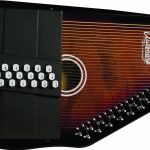 AutoharpApril 4, 2024What Is the Autoharp Made Of: Exploring Its Materials and Craftsmanship
AutoharpApril 4, 2024What Is the Autoharp Made Of: Exploring Its Materials and Craftsmanship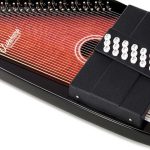 AutoharpApril 4, 2024Is Autoharp Easy to Play? Unveiling the Truth for Beginners
AutoharpApril 4, 2024Is Autoharp Easy to Play? Unveiling the Truth for Beginners AutoharpApril 4, 2024What Is an Autoharp Worth? Your Guide to Pricing and Value
AutoharpApril 4, 2024What Is an Autoharp Worth? Your Guide to Pricing and Value AutoharpApril 4, 2024Are Autoharp and Zither the Same Thing? Unraveling String Instrument Myths
AutoharpApril 4, 2024Are Autoharp and Zither the Same Thing? Unraveling String Instrument Myths
Affiliates:
This post may contain affiliate links that at no additional cost to you, the site may earn a small commission. We only recommend products we would use ourselves and all opinions expressed on this site are our own.
Accuracy Advice:
While we strive to provide up-to-date and accurate information, the content in this article may not reflect the most current research or medical guidelines. We encourage readers to do further research and consult with professionals for more personalized advice.
Our Recommendations:
The products and services mentioned in any of our articles are recommended based on our independent research and personal experience. We are not sponsored by any company. We aim to suggest products and services we believe are of high quality and could be beneficial to our readers.

